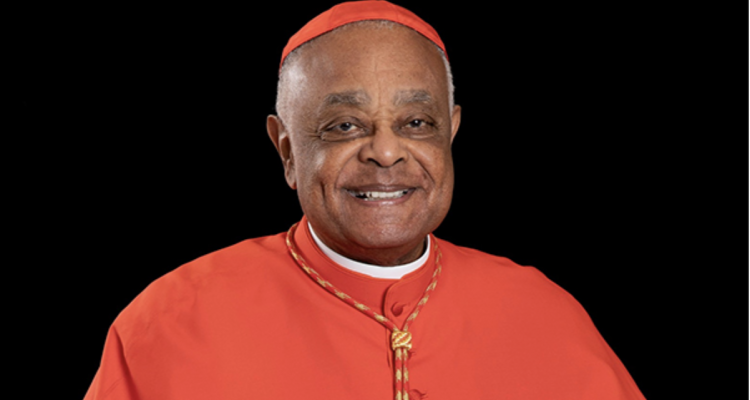In the inaugural “Faith and Leaders for Racial Justice” lecture, presented by the Office of Mission and Ministry, Fairfield University welcomed Wilton Cardinal Gregory to discuss racial injustice in the context of faith on Oct. 13. at 7 p.m. in the Quick Center.
“The thesis of this lecture series is ‘Faith and people of faith belong at the center of the struggle for racial justice and human dignity’” says Rev. Paul Rourke, S.J., vice president of Mission and Ministry at Fairfield.
In his introduction of the event, Rourke explains that “The original sin of racism is still with us today.” He continues to explain that racism is structural. It is not a personal sin. Rather, it is something that the Catholic church community must work together to eradicate. After all, “Probable progress is only certain progress when we all work together,” Rourke says.
Fairfield University President Mark R. Nemec, Ph.D. who introduced the Cardinal and provided the audience with a summary of his accomplishments.
Appointed as the seventh archbishop of the Archdiocese of Washington in 2019, Wilton Cardinal Gregory was named one of the thirteen new cardinals from around the world by Pope Francis on Oct. 25, 2020. It was on Nov. 28, 2020, that he was elevated to the College of Cardinals.
He has served in many leading roles in the Catholic church and has written extensively on issues in the church. Some of the issues he has addressed in his writing include the death penalty, euthanasia/physician-assisted suicide, interreligious and ecumenical affairs and more.
In this Lecture, Cardinal Gregory focused on the racial injustices of the Catholic Church. “It is only fitting that we as a church discuss racial injustice in the context of our faith,” he explains.
The Cardinal discussed the ways in which faith has been twisted in the church in the past to justify the suffering of enslaved people, to condone the exclusion of minority groups, particularly Hispanic groups and to perpetuate segregation.
“It is abundantly clear that faith calls us to act,” said Cardinal Gregory. Countless Black, Hispanic and Indigenous peoples have been affected by injustices performed by members of the church.
The Cardinal explained that conversations surrounding faith and racial injustice often make people uncomfortable. Most people like to consider themselves as being on the right side of history. It is easier to ignore the sinful past or claim that circumstances have improved for people of color in the church. Many look toward the injustices and poverty of racial minorities with an “it’s just too bad” mindset. As both Rourke and the Cardinal emphasize, this mindset is not what will bring about change.
Instead, Cardinal Gregory calls members of the church to act, to “promote peace in a world full of hostility and conflict.” He calls church members to address the church’s history of racial injustice and work to create a welcoming environment for all people. “We must model Christ in our society in every way we can,” he says.
At the close of his lecture, student and faculty panelists were invited onto the stage to ask questions and engage with Cardinal Wilton. It was this portion of the lecture in which audience members learned of the Cardinal’s religious education and his personal experiences with the church, race and faith.
In the question and answer portion of his lecture, Cardinal Gregory reveals that, though it may sound simple, the reason that we may not find as many minority groups in the Catholic church is that they do not feel welcome in their own church communities. He explains in disbelief that many non-Catholic Christians do a better job of saying welcome than many Catholic Christian churches.
“We must do better at creating ministries of welcome in the church that attracts people,” he claims.
As a Jesuit university, it is important that Fairfield students acknowledge the Catholic church’s past racial injustices and look toward creating a religious culture on campus that is inclusive and welcoming.
Confirming this notion, Cardinal Gregory says, “No one should graduate from Fairfield without knowledge of the church’s social triumphs while also recognizing when the church has ‘dropped the ball.’”
Cardinal Gregory’s lecture was the first of many, sponsored by the Center for Catholic Studies at Fairfield. The Fairfield community can look forward to the continuation of this series as well as other religion-based lectures with poet Carolyn Forché, and Bishop John Stowe in the coming weeks. Students can attend these in-person events at the Dolan School of Business Event Hall, or register for live streams on the Center For Catholic Studies’ website.


Leave a Reply